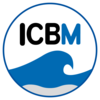2025-04-10 12:15
W15 1-146 | ICBM-Kolloquium
| |
2025-04-24 12:15
W15 1-146 | ICBM-Kolloquium
| |
2025-05-08 12:15
W15 1-146 | ICBM-Kolloquium
| |
2025-05-22 12:15
W15 1-146 | ICBM-Kolloquium
| |
2025-06-05 12:15
W15 1-146 | ICBM-Kolloquium
| |
2025-06-19 12:15
W15 1-146 | ICBM-Kolloquium
| |
2025-07-03 12:15
W15 1-146 | ICBM-Kolloquium
| |
Past Events: |
2024-10-24 12:15
W15 1-146 (Hybrid) | ICBM-Kolloquium
"Mangrove swampsandmarshyground: fromwastelandtoNature-basedSolution“
Prof. Dr. Thorsten Balke (IBU Universität Oldenburg) | Prof. Dr. Helmut Hillebrand |
2024-11-07 12:15
W15 1-146 (Hybrid) | ICBM-Kolloquium: Dr. Ellen van Velzen, Universität Potsdam
„ Howadaptive andmaladaptive traitchangesinfluencespeciesdiversityin predator-preysystems“
Dr. Ellen van Velzen (Universität Potsdam) | Dr. Stefanie Moorthi |
2024-11-21 12:15
W15 1-146 (Online) | ICBM-Kolloquium: Prof. Dr. Janine Adams, Nelson Mandela University, Gqeberha, RSA
„Restoration of environmental flows for multiple estuary benefits “
Prof. Dr. Janine Adams (Nelson Mandela University, Gqeberha, RSA) | Prof. Dr. Helmut Hillebrand |
2024-12-05 12:15
W15 1-146 (Hybrid) | ICBM-Kolloquium: Prof. Dr. Amy Willis, University of Washington
Differential abundance in ecological surveys based on high-throughput sequencing
Prof. Dr. Amy Willis (University of Washington) | Prof. Dr. Murat A. Eren |
2025-01-16 12:15
W15 1-146 (Hybrid) | ICBM-Kolloquium
„Modelling microbial biodiversity in the seascape “
Dr. Ben Ward (University of Southampton) Abstract Marine ecosystems are dominated by microscopic plankton. Although small in size, there are more plankton in the ocean than stars in the observable universe. This astronomic abundance leads to big impacts on the health of our oceans and our planet. Capturing energy from the sun, plankton create the food that supports almost all life in the ocean and drive vast fluxes of carbon that play a key role in the regulation of Earth's climate. In recent years, significant progress has been made in sequencing, identifying and mapping the genetic structure of ocean ecosystems, with clear patterns identified across the global ocean. However, the underlying causes of these patterns remain poorly understood. Community ecologists have proposed that at the most general level, the global composition and diversity of species are influenced by just four key processes, namely selection, drift, adaptation and dispersal. While recent empirical work has sought to identify the contribution of these processes to plankton community composition, most global ecosystem models focus primarily on selection and dispersal - largely ignoring drift and adaptation. In this talk I will review existing models of global plankton ecology and community structure and discuss new models that aim to represent a broader range of underlying processes. As each process can be individually manipulated in these models, it is possible to gain estimates of the relevant contribution of each one to large scale patterns. Nonetheless, it remains an ongoing challenge to relate these outputs to empirical observations.
| Prof. Dr. Sinikka Lennartz |
2025-01-30 12:15
W15 1-146 (Hybrid) | ICBM-Kolloquium
"Metabolic regulation of photosymbioses: mutualism through competition?"
Dr. Nils Rädecker (HIFMB Universität Oldenburg) | Prof. Dr. Helmut Hillebrand |

